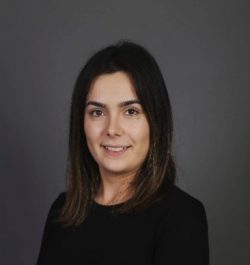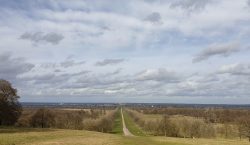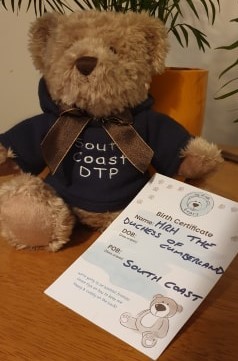Date: 06/06/2019

Sorina Toltica: PhD Researcher based at University of Portsmouth, School of Area Studies, History, Politics and Literature; Researching the character of contemporary UK & US military engagement in West Africa; Previously worked for West Africa Network for Peacebuilding Senegal (WANEP), on the Early Warning and Early Response Network (WARN).

As January and February felt more like six months rather than two after a well-deserved Christmas break, some of us were lucky enough to attend this year’s residential trip to Cumberland Lodge. The theme was an issue that is continuously present in our minds – employability.
Day One of Activities- Policy Proposal
We started the day with ‘30 Second Elevator Pitches’, an exercise aimed at improving the way we talk about our research in a very short period of time. In front of colleagues, we imagined we were in an elevator with the director of ESRC and in just 30 seconds we had to present the theme and methodology of our PhD, but people have tailored their pitch as they felt appropriate. Challenging, but all of us have done a great job.
After a short coffee break, the main task of the day, a ‘Policy Challenge’ had been set by our PostDocs. Organised in small groups, we were required to draft and present in a couple of hours a policy solution to the current issue of knife crime in the UK.
Dr Jason Horsley, Joint Director for public health in Southampton & Portsmouth City Councils, as expert and judge kindly provided us with an introduction, not only on the issue itself, but he outlined some of the major challenges and key aspects to consider when designing policy solutions. We had to consider the various stakeholders, budgets and reliable data when designing our presentations. I hope some of the information and ideas we drafted will be of great use to the local government bodies.
The activity has benefited us in more than one way. Firstly, we have gained some knowledge and experience on a task that is usually used in assessment centres. Secondly, it fostered good communication, collaboration and interdisciplinarity. The composition of teams has been very diverse in terms of the research profile the members had- both quantitative and qualitative as well as provenance from various departments and years of study.
Day Two of Activities- Applying for Grants
On the second day, we had the privilege of being given a presentation followed by a Q&A session from Paul Rouse. Firstly, we were given an overview of the UK Research and Innovation (UKRI), the new body that facilitates the partnership between universities, research organisations, businesses, charities, and government. Secondly, with decades of experience in applying and conducting research, Paul kindly shared valuable advice and tips in applying for research grants.


Following lunch, we enjoyed the good weather and great views with a walk around the Windsor Great Park. Just before returning to Portsmouth, I was given the privilege of caring for HRH Duchess of Cumberland, as recognition for being the most engaged. I can confirm she is safe (and away from my cat). Who says engagement cannot have a fun part too?! The time at Cumberland Lodge was both useful and relaxing. On the one hand, the activities provided us with a wide range of skills, whether at the end of our PhD journeys we decide to stay in academia or work for an organisation, institute or body. On the other hand, in between sessions, we also had some time for entertainment. Evenings were entirely dedicated to socialising and getting to know each other beyond research profiles, drinks, games and listening to some of our talented colleagues singing and playing the piano.